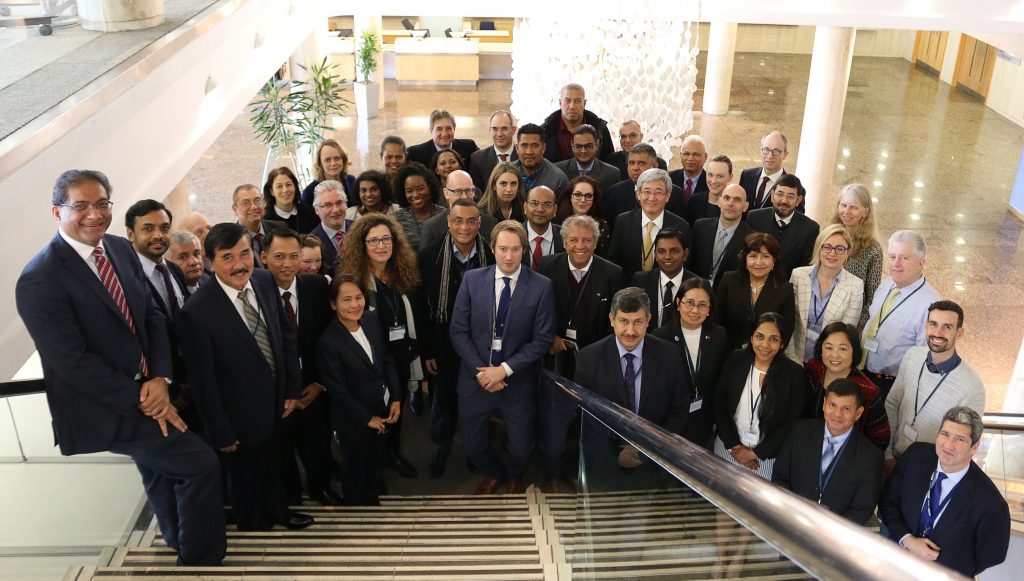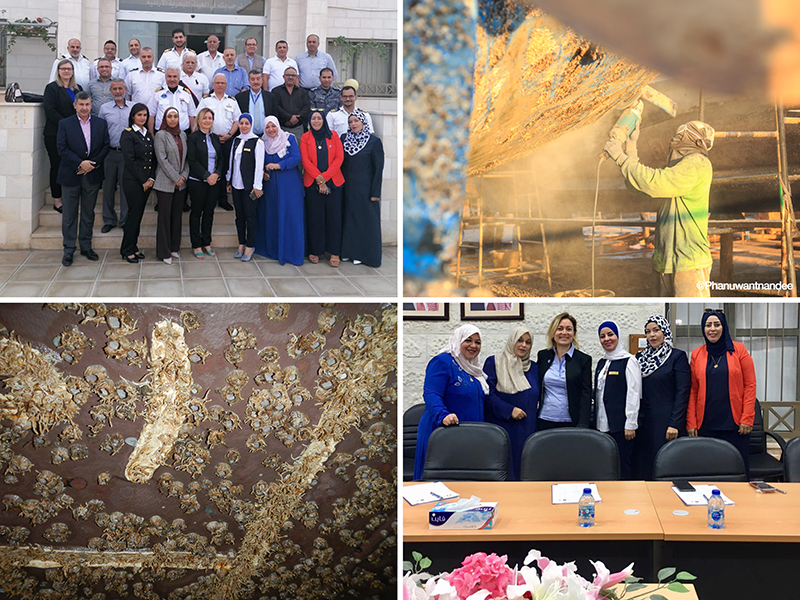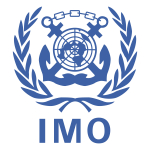National and regional strategies, training courses and guides
a- GloFouling Update
D:\Workshops 2020\GloFouling\NTF\GloFouling Partnerships update.pdf
b- Guidance for National Experts Profiles
D:\Workshops 2020\GloFouling\NTF\Guidance for National Experts Profiles.pdf
Rapid Status Assessment on biofouling management and invasive aquatic species
To be updated soon
National economic assessments on the impact of biofouling and invasive aquatic species
To be updated soon
National Strategy for biofouling management
To be updated soon
Meetings (National workshop, conferences, RCOs rountable)
- 1st meeting Global Project Task Force of GEF-UNDP-IMO GloFouling (GPTF-1)
A representative of the Regional Organization for the Conservation of the Environment of the Red Sea and Gulf of Aden has participated in the Kickoff meeting of the GloFouling Partnership Project that was held in London during the Period 18-20/3/2019. The project is a partnership between the International Maritime Organization (IMO) the United Nations Development Programme (UNDP) and the Global Environment Facility (GEF) co assisted by the International Oceanographic Commission of UNESCO (IOC-UNESCO) and the World Ocean Council (WOC). PERSGA was selected among other seven regional organizations to run this project for the coming five years. The project is funded by GEF for 6.9 Million $US. Four countries, namely: Jordan, Sudan, Djibouti and Somalia, from the Red Sea and Gulf of Aden Region will participate in this project. The project aims to protect the marine biodiversity by minimizing the impacts from aquatic Biofouling organisms and support Goal number 14, life below water, of the United Nation Sustainable Development Goals (SDGs).

Further information can be found here:
http://www.imo.org/en/MediaCentre/PressBriefings/Pages/05-glofouling-taskforce.aspx
- National workshop of the GEF-IMO-UNDP GloFouling Partnerships Project and National Task force meeting on Bio fouling management and invasive aquatic species in Aqaba-Jordan
Under the framework of the GEF-UNDP-IMO GloFouling Partnerships project to tackle invasive aquatic species worldwide, in cooperation with the international Maritime Organization (IMO) and the Aqaba of Special Economic Zone authority (ASEZA), the regional organization PERSGA have co-organized a national workshop hosted by the Jordan Maritime Commission (JMC) from 11 to 12 November 2019 in the port city of Aqaba -Jordan.
It aimed to raise awareness on biofouling as a pathway for non-indigenous species and discuss approaches on how biofouling should be controlled and managed to minimize the transfer of invasive aquatic species through ships’ hulls. Among the participants were representatives of various maritime sectors, including marina ports and civil society organizations.
The debate highlighted biofouling issues and vectors, also the impact of invasive aquatic species along the Jordanian coastline. At the end of the Workshop, participants agreed on the establishment of the National Task Force and agreed on the next steps. A communication platform among all the members of the Task Force will be developed, which will assist to define a national policy on biofouling and invasive species in Jordan. The members will also draft the national strategy and action plan to implement the IMO Biofouling Guidelines.
The next step for the GloFouling Partnerships in Jordan will be to develop national baseline reports to assess the current situation regarding non-indigenous species and biofouling management practices. Currently available research on the subject will be identified and the potential economic impacts assessed, with a view to facilitate informed policy decision-making.

Credit: IMO/PERSGA
- GloFouling COVID-19 Meeting (11 and 13 May 2020)
The GloFouling Partnership project PCU (Project coordination Unit) has convened a three hours virtual and extraordinary meeting using the WebEx platform, on May 11, 2020. The web based meeting was aiming to open discuss about update of achievement so far with regard of activities under GloFouling project, challenges and the consequences of COVID-19 and the mitigation measures to be taken to deal with any disruption due the new pandemic.
Around twenty Port State Control Officers, Environmentalists, Captains representing three Regional Coordinating Organizations (RCOs) such as PERSGA, PEMSEA and SACEP, and Lead Partnering countries (LPCs) from Indonesia, Madagascar, Mauritius, Sri Lanka, Philippines, and PERSGA Member State, namely Jordan, attended this virtual meeting.
The virtual meeting provided an excellent and effective platform for participants to present their progress report, exchange views, and discuss challenges, ideas and recommendations on the way forward.
The PCU reported that significant delays (8 months at least) in delivery of trainings, workshops and meetings at national and regional levels− due to the expected long timeline for resumption of business as usual and travel− would be observed and expected. The next regional Round Table meeting with all RCOs is most likely going to be conducted remotely in July 2020.
In view with the current pandemic outbreak impacts on the project progress, the PCU and the project executive committee have positively welcomed among mitigation measures to the impact of COVI-19 to engage RCOs and discuss alternative ways and means to deliver national and regional activities, for example investigate the RCOs the possibility to use or increase the use of on-line tools to contact regional meetings.
Meeting summary
D:\Workshops 2020\GloFouling\LPCs and RCOs meeting(COVID 19)\COVID-19 Meeting summary.pdf
D:\Workshops 2020\GloFouling\LPCs and RCOs meeting(COVID 19)\Presentation Covid-19 Group 1 (11 May 2020).pdf
National task Forces COMPOSITION AND MEETINGS
National Task Force objective:
The National Task Force (NTF) will be an inter-agency and cross-sectoral working group, with representatives from all relevant stakeholders. The NTF shall draft a national strategy and action plan and help implement the activities of the GloFouling Partnerships at the national level.
Roles, responsibilities and tasks of the Lead Agency and National Task Force
Considering the complexity of biofouling management and its cross-sectoral aspects, it is not possible for one single ministry, institution or party to address the biofouling issue alone at the national level.
Although it is recommended that one ministry or agency should be designated as Lead Agency, this agency must be supported by an inter-agency and cross-sectoral NTF.
The roles, responsibilities and tasks of the NTF, will include at least:
- Provide a forum for inter-agency and cross-sectoral communication and consultation on the biofouling issue;
- Coordinate the work of different government agencies, industry sectors and other groups concerned with the issue of biofouling (environment, ports; maritime transport and offshore activities, fisheries, aquaculture, etc.);
- Develop and ensure the implementation of a cross- sectoral outreach plan;
- Ensure the development of a national website for the dissemination of information and awareness raising;
- Make an inventory of any existing policies, regulations and practices related to invasive species and biofouling; identify regulatory gaps and draft appropriate management measures;
- Commission a national assessment on biofouling management (using the GloFouling Guide);
- Carry out a study on the economic impact of invasions due to biofouling and the cost of biofouling management measures (using the GloFouling Guide);
- Develop a national biofouling management strategy and a work plan for its implementation (using the GloFouling Guide);
- Ensure adequate participation in training courses delivered under the GloFouling project and choose a demonstration site to illustrate a national priority theme;
- ensure that the information necessary for the implementation of the national biofouling management strategy and implementation plan is available to all interested parties;
- communicate the national strategy at the regional level with the aim of finding synergies, opportunities for regional cooperation and harmonization of national strategies, and to raise awareness in neighbouring countries of the issue of biofouling and the associated risks of invasive species transfer;
- authorize and facilitate visits by experts to support the development or implementation of the strategy, particularly within the framework of the GloFouling Partnerships project; and
- actively participates in the activities implemented by the GloFouling Partnerships project at the global level.
NTF\NTF objective, role, responsibilities and members contact details.docx
Regional task Forces COMPOSITION AND MEETINGS
To be updated soon


